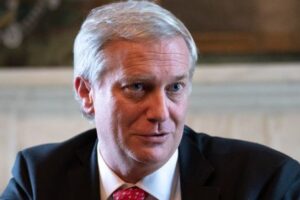
Brazil’s political landscape in 2025 is defined by a high-stakes legal drama involving former President Jair Bolsonaro, whose prosecution for alleged coup plotting and election interference has become a flashpoint for national polarization. As the 2026 presidential election approaches, foreign investors must grapple with the implications of this turmoil for Brazil’s democratic institutions, economic stability, and long-term investment climate. The interplay between Bolsonaro’s legal challenges, the rise of left-wing governance under President Luiz Inácio Lula da Silva, and the fragmented right-wing opposition will shape Brazil’s trajectory—and with it, the risks and opportunities for global capital.
Bolsonaro’s Legal Challenges: A Political Earthquake
Bolsonaro’s trial, set to conclude in mid-September 2025, has already triggered seismic shifts in Brazil’s political ecosystem. The former president faces up to 40 years in prison on charges of attempting to overthrow the 2022 election results, a case that his supporters frame as a “witch hunt” and his critics view as a necessary reckoning for democratic norms. The U.S. government’s public criticism of the trial and retaliatory measures—such as 50% tariffs on Brazilian exports—have further complicated the situation, exposing foreign investors to geopolitical volatility.
The legal proceedings have also intensified domestic polarization. A recent Datafolha poll shows 53% of Brazilians reject claims of political persecution against Bolsonaro, while 47% support his prosecution. This divide is mirrored in the political arena, where Bolsonaro’s 2022 electoral coalition remains a potent force despite his 2030 electoral ban. His allies, including evangelical leaders and conservative politicians, continue to mobilize, creating a fragmented right-wing movement that lacks a clear successor. Potential candidates like São Paulo Governor Tarcísio de Freitas and Minas Gerais Governor Romeu Zema are vying for the mantle, but internal rivalries threaten to dilute the bloc’s electoral strength.
For investors, the uncertainty is palpable. A conviction could embolden Lula’s administration to push aggressive reforms, including higher taxes and expanded social spending, which might appeal to Brazil’s working class but deter business-friendly policies. Conversely, a acquittal could reignite anti-establishment sentiment, potentially fueling another wave of political instability.
Economic Risks and Resilience
Brazil’s economy, while modestly growing at 2.3% in 2025, faces headwinds from high interest rates (Selic at 14.25%), a fragile fiscal position (public debt at 79.6% of GDP by 2028), and a slowing global economy. Foreign direct investment (FDI) inflows, however, remain a bright spot. In June 2025, FDI hit $6.4 billion, driven by the agricultural sector’s recovery and services growth. Over the past 12 months, cumulative FDI totaled $67 billion, or 3.14% of GDP—a testament to Brazil’s enduring appeal as a resource-rich, strategically located market.
Yet, political uncertainty looms large. The Lula government’s proposed income tax reform, aimed at reducing inequality, has stalled due to centrist opposition. Meanwhile, the right-wing’s fragmented base may struggle to coalesce around a unified economic agenda. For foreign investors, the key sectors to watch are agriculture (benefiting from global commodity demand) and infrastructure (where public-private partnerships could unlock growth). However, structural bottlenecks—such as inadequate logistics and regulatory complexity—remain significant hurdles.
Opportunities in a Shifting Power Dynamic
The 2026 election could see a return to the 2022 pattern of a tight race between left and right, but with new dynamics. A left-wing victory under Lula or a successor could prioritize social programs and environmental policies, aligning with global trends in sustainable investing. Conversely, a right-wing candidate might emphasize market liberalization and fiscal discipline, though internal divisions could weaken their appeal.
Investors should also consider the role of Brazil’s vast natural resources in the global energy transition. The country’s lithium reserves and potential in green hydrogen could attract capital if the government streamlines permitting and investment incentives. However, environmental regulations under Lula’s administration may complicate large-scale projects.
Strategic Recommendations for Foreign Investors
Diversify Exposure: Given the political volatility, investors should diversify across sectors and geographies. Agriculture, renewable energy, and technology-driven services offer resilience. Hedge Political Risks: Currency and political risk insurance can mitigate exposure to sudden policy shifts or legal challenges. Engage with Local Partners: Collaborating with Brazilian firms or multinationals with local expertise can help navigate regulatory complexities. Monitor Fiscal and Monetary Policy: The Selic rate and public debt trajectory will remain critical indicators of economic stability.
Conclusion
Brazil’s 2026 election will be a defining moment for its democracy and economy. Bolsonaro’s legal fate, the left’s ability to consolidate power, and the right’s capacity to unify will determine the country’s direction. For foreign investors, the path forward requires a nuanced understanding of both political and economic risks. While Brazil’s long-term potential remains intact, the coming months will test the resilience of its institutions—and the patience of global capital.
In this climate, prudence and adaptability are paramount. Investors who balance caution with a long-term vision may find opportunities in Brazil’s evolving landscape, even as the nation grapples with its turbulent present.





